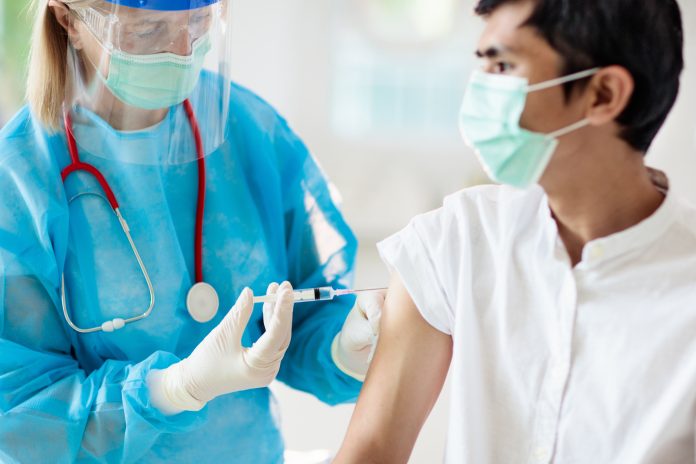A new clinical trial will investigate whether a third COVID-19 vaccine dose gives a stronger immune response for people with weakened immune systems
The OCTAVE DUO study will offer people who are immunosuppressed or immunocompromised a third Pfizer, Moderna or Novavax vaccine to determine whether this will give a stronger immune response than 2 doses.
OCTAVE DUO trial
Up to 1,200 patients will be recruited to the OCTAVE DUO trial, including those with:
- Lymphoid malignancies
- Immune mediated inflammatory diseases (including rheumatoid arthritis, psoriatic arthritis, vasculitis and inflammatory bowel disease)
- Renal disease
- Solid tumours (including breast and lung cancers)
- Haematopoietic stem-cell transplantation
- Hepatic and intestinal disease
- Primary immune deficiency
The £2.2 million study, co-funded by the government’s Vaccines Taskforce and UK Research and Innovation (UKRI) will be led by the University of Glasgow and co-ordinated by the University of Birmingham’s Cancer Research UK Clinical Trials Unit.
The trial will follow the patients to mid-2022 but initial results are expected later this year.
Health and Social Care Secretary Sajid Javid said:
“Vaccines have built a strong wall of defence in the UK and this is allowing most of us to learn to live safely with COVID-19.
“We know some people may get less protection from the vaccine than others, so we are planning for a booster programme in the autumn, prioritising those most at risk.
“This new study will play an important role in helping to shape the deployment of future vaccines doses for these specific at-risk groups.”
Professor Iain McInnes, Head of the College of Medical, Veterinary and Life Sciences at the University of Glasgow who leads the OCTAVE and OCTAVE DUO studies, said:
“It is hugely important for us to urgently understand the effectiveness of COVID-19 vaccines in people who have immune-mediated inflammatory diseases, cancer, and diseases of the kidney or liver.
“Our first study to answer this question is the OCTAVE study which has shown that there is a group of patients who may not mount a sufficient immune response.
“We are pleased to now roll-out the OCTAVE DUO trial, to investigate the effects of a third dose on this particular group of patients who have shown an undetectable or low vaccine response. We hope to provide answers to this very important unanswered question.”
Professor Pam Kearns, Director of the University of Birmingham’s Cancer Research UK Clinical Trials Unit which is co-ordinating both OCTAVE and OCTAVE DUO, said:
“The pandemic has been particularly concerning for millions of people in the UK who have conditions or long term illnesses which place them at greater risk of severe illness and death from COVID-19.
“Together with our preliminary findings from OCTAVE, this new study will be instrumental in helping inform how best to vaccinate patients with chronic conditions, and protect them from COVID-19 infection in the future.”











